13 Oct
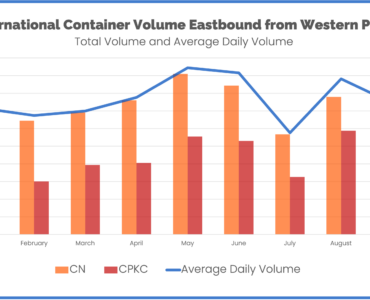
Canada Intermodal Rail Volume Report: September 20...
The total average daily volume headed eastbound from the Western Canada ports was down 15.6% in September compared to August. Compared to earlier in the year when CPKC moved about one third of international intermodal containers from the western ports,
07 Sep
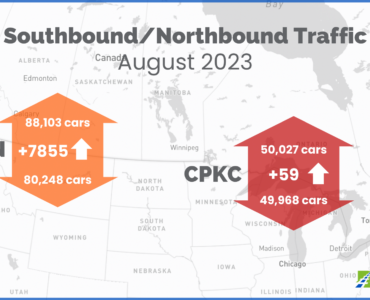
Traffic Report: Cross Border, August 2023
Total southbound traffic from Canada in August was 130,216 carloads. This is a 7.1% increase over July.
07 Sep
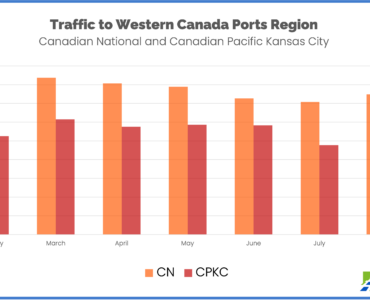
Traffic Report: Western Canada Ports, August 2023
Overall traffic moving into the western ports region increased in August, going from 118,477 carloads moving to the ports in July to 131,338 carloads, an increase of 10.9%. Daily average volume in August was 4,378 carloads per day.
07 Sep
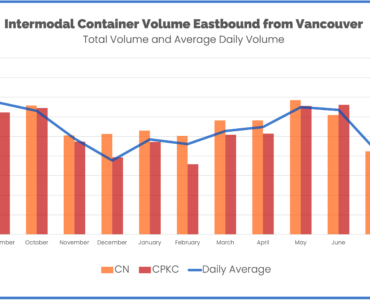
Traffic Report: Intermodal – Port of Vancouv...
August saw 67,233 containers enter through the Port of Vancouver. This is a 55.0% increase over July, which had much lower volumes stemming from the work shutdown at the western Canada ports. Average daily volume was 2,201 containers per day,
25 Aug
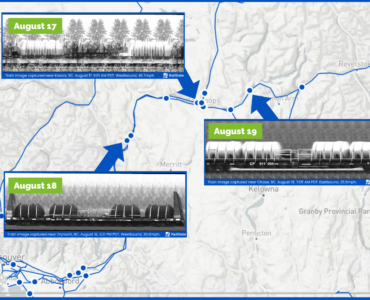
RailState Update: British Columbia Wildfires
RailState has looked in more detail at how CN and CPKC handled the August 18 traffic interruption in the Fraser River Canyon Directional Running Zone caused by the Kookipi Creek Fire.
22 Aug
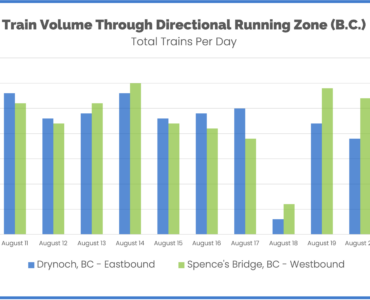
RailState Special Report: Extreme Weather Impact
Flooding Halts Rail Traffic in Southern California, Wildfires Stop Trains in British Columbia
18 Aug
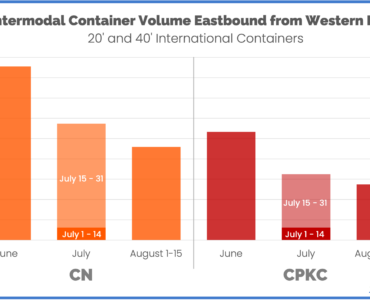
Canadian Rail Network Update – Recovering Af...
In the month since the end of the main strike period, the railroads are close to matching volumes seen before the strike. There has not been a significant, widespread increase in train volume aimed at clearing backlogs caused by the
25 Jul

RailState Bolsters Customer Team with Addition of ...
Glen Doiron joins RailState as Solutions Architect. Glen comes to RailState with a unique combination of shipper, class 1 railway, business analytics, and SaaS product experience.
19 Jul
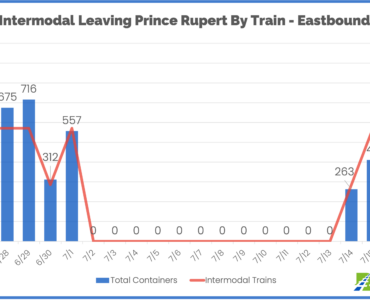
Western Ports Strike Special Report – Tempor...
The port terminals and railroads are moving quickly to resolve any backlogs as a result of the work stoppage.
13 Jul
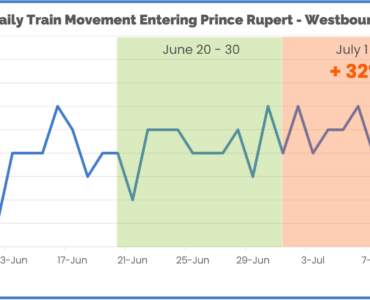
Western Ports Strike Special Report – Commod...
RailState is closely monitoring the flows of rail traffic in the western ports region as a result of the ILWU strike. Intermodal experienced the most immediate changes from the work stoppage, slowing to a halt soon after the start of


